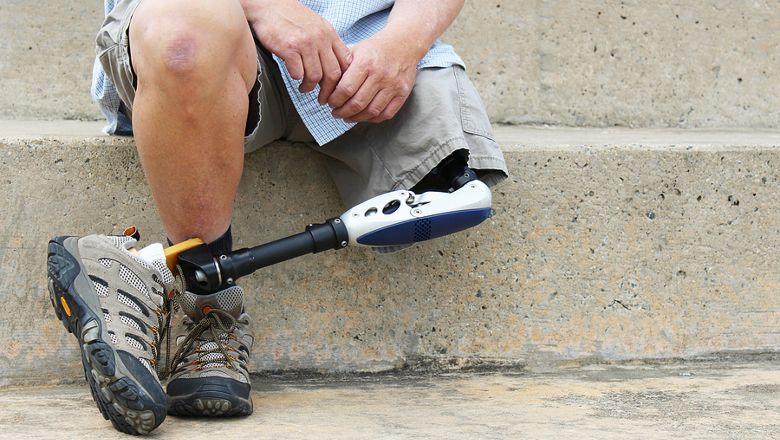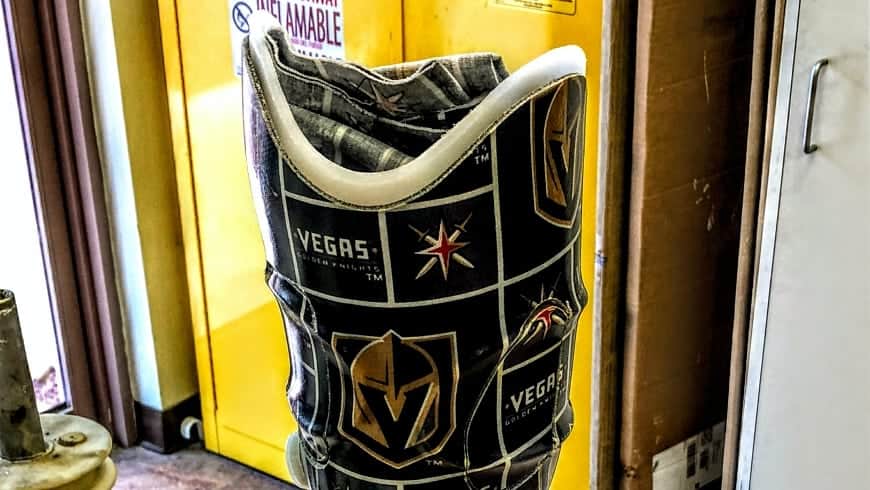At Evolve Prosthetics & Orthotics, we know there is a lot to consider when deciding on an above-the-knee prosthesis. This type of limb replacement is generally harder to use and may require a longer rehabilitation period than other leg prostheses. We are here to help you navigate the decision-making process and do all we can to help you regain mobility and live your best life.
About AK Prosthetics
An above-the-knee (AK) prosthesis, also known as a transfemoral (TF) prosthesis, is worn by a person who has had their leg amputated above the knee. These devices generally consist of a socket into which the residual limb fits. They also include a knee joint, a pylon or shin tube, and a prosthetic foot and ankle. AK prostheses will also have a suspension of some kind to attach the artificial limb to the residual limb and a cosmesis (cosmetic cover).
Are They Comfortable?
A properly fitted AK prosthesis should not hurt. New amputees may experience a breaking-in period with some initial discomfort as they get used to wearing their new limb, but this should go away over time.
The Right Knee Is Key
When deciding on which AK prosthesis is suitable for you, your doctor will consider your level of amputation, the types of activities you want to do, cost, and other factors. One of the key considerations will be the type of knee joint, as there are many kinds, each having unique pros and cons. For more information, see our separate article on knee prosthetics.
- Single-Axis Knee
- Polycentric Knee
- Manual Locking Knee
- Weight Activated Safety Knee
- Pneumatic or Hydraulic Knee
- Microprocessor Knees
Other Things To Consider
Your prior and anticipated levels of activity are key factors in selecting an AK prosthesis. For instance, an older individual with diabetes who was inactive before amputation may be less likely to choose a highly functional microprocessor knee than a young athletic person. How much walking, stair climbing, sitting and standing, backward walking, and other daily movements you do will help guide your decision.
The Importance Of A Good Fitting Socket
Over time the limb around your prosthesis may naturally shrink, causing the socket to stop fitting correctly. A poorly fitting socket can cause skin blisters and ulcers, affect your balance and ability to walk well, and may also cause you to fall. Residual limb pain may also develop as the result of an ill-fitting socket. If your AK prosthesis starts to hurt or you feel that it no longer fits correctly, schedule an appointment with your provider for an adjustment.
Las Vegas & Henderson Custom AK Prosthetics
Evolve Prosthetics & Orthotics specializes in custom prostheses for all types of amputees, including those who have experienced an AK amputation. Give us a call or come in to request an appointment to discuss your options. We would love to help you find the best solution for your mobility needs.




